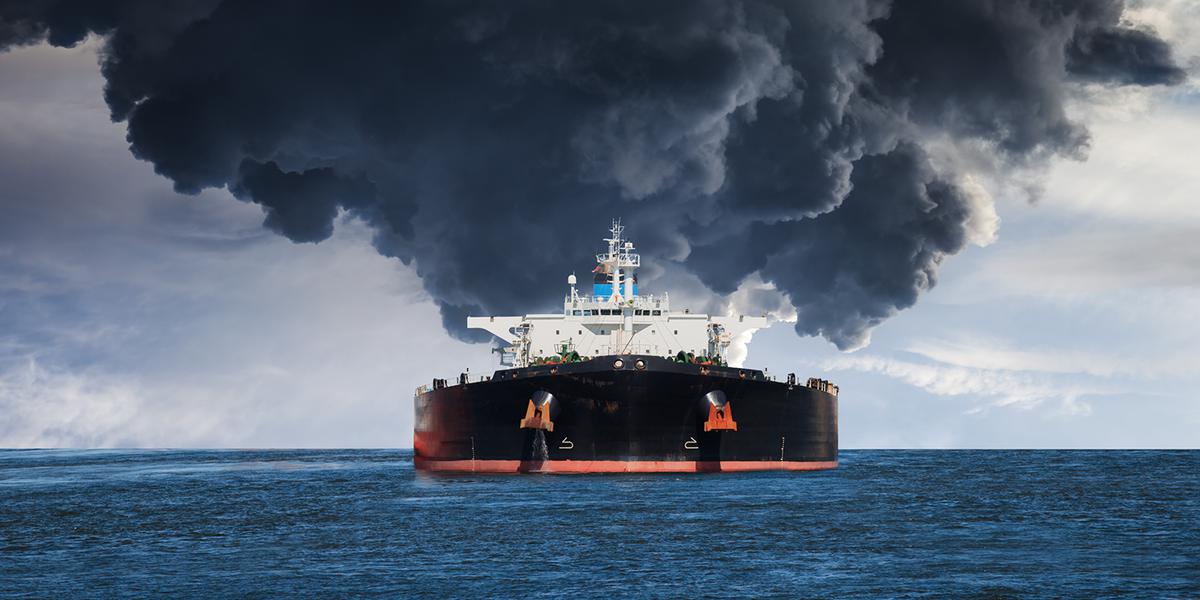Mapping the path towards a lower carbon marine industry
Thursday, 17/02/2022, 14:39 GMT+7

ExxonMobil hosted an online discussion in association with The Motorship in early October that brought together senior figures from across the marine industry to discuss the challenge of decarbonisation and identify what would be needed to move forward. The discussion was moderated by Unni Einemo, Director at IBIA.
Charlotte Røjgaard, Global Head of VeriFuel at Bureau Veritas, said cooperation between all stakeholders in the industry would be needed for a smooth transition. “While individual shipowners’ fuel choices will need to be based on their operational segment, routes and vessel sizes, greater transparency will help ship owners know what to expect.”
The need for clarity is especially important in a multi-fuel future, given the potential range of different fuels and technical solutions, according to Røjgaard.
Christophe Pouts, Global Regulatory Affairs Advisor at ExxonMobil, emphasised the role of regulators in creating a level playing field. “The establishment of a low carbon market is essential to enable the effective transition towards the use of alternative fuels,” he explained.
ExxonMobil supports the creation of a performance-based, technology-neutral approach, such as a Low Carbon Fuel Standard (LCFS), aimed at a gradual reduction in the carbon intensity of the fuels consumed by ships, he explained.
James Sagar, Global Marine Sustainability Manager at SeaRiver Maritime, explained the role of LNG, which he said “is a great transition fuel”. “Longer term, if combined with bio-LNG or synthetic LNG from renewables, this could open a potential future pathway for LNG to stay viable as a lower GHG emission fuel.”
Given the different characteristics of some of the fuels under consideration, lubricant suppliers would be unlikely to provide a single cylinder oil to meet all eventualities, explained Yannis Chatzakis, Global Field Engineering Manager, Aviation & Marine Lubricants. “If you asked me to take a guess today, I would say that probably more specialised lubrication technology will have to be developed.”
Evi Politi, R&D Manager at Danaos Shipping, stressed the importance of the market and techno-economic factors in reducing international shipping’s emissions. “As a ship owner, in order to proceed with ordering zero-carbon vessels, we would need to see the technology, the regulatory framework, fuel availability, and port and bunkering infrastructure for the investment to be viable.”
According to Andreas Schmid, General Manager Technology Development at WinGD, the entire engine design and supply sector is making investment decisions based on expectations of a multi-fuel future. WinGD itself is looking to develop engines with greater fuel flexibility, with the intention that some form of retrofitting would be possible, to meet “customer’s specific needs or requirements”.
A full report of the roundtable can be found here.
Your Comments
Other news
Trong phần 1 và phần 2 của series, chúng ta đã cùng nhau phân tích sâu về những quy định của IMO 2020 và các thách thức kỹ thuật không thể xem nhẹ khi vận hành ...
Trong phần 1 của series, chúng ta đã cùng nhau tìm hiểu những quy định cốt lõi của IMO 2020. Việc chuyển đổi sang sử dụng Nhiên liệu có hàm lượng lưu huỳnh ...
Kể từ ngày 1 tháng 1 năm 2020, quy định của Tổ chức Hàng hải Quốc tế (IMO) về việc giới hạn hàm lượng lưu huỳnh trong nhiên liệu hàng hải đã chính ...
Another big success in lowering carbon
The marine industry is facing growing demands to develop more sustainable ways of operating. As a result, many established practices are being called into question, including the bulk delivery of ...
Mobilgard™ 540 AC is a new premium 40BN marine cylinder oil developed by ExxonMobil
The International Maritime Organization (IMO) adopted its initial levels of ambition for a quantitative fall in marine industry greenhouse gas emissions (GHG)
The maritime sector is experiencing radical change from two directions; the drive towards decarbonisation and the growth of digitisation. Both are set to radically change the management and operation ...
International Maritime Organization’s (IMO) 2020 sulphur cap has resulted in some much-publicised changes to marine fuel formulations
The maritime industry is undergoing seismic shifts of mounting complexity – a process set in motion by the International Maritime Organization’s (IMO) 2020 sulphur cap on marine fuels.







__imo5.png)
__BYn_sao_cYa_Health_1.png)
__IMO_2020_cover.png)
__facility_management_2.jpg)
__2272977.jpg)
__marine-navigational-officer-chief-mate-navigation-watch-ship-vessel_461973-2206.jpg)
__Untitled.jpg)
__iStock-1148527893_V2.jpg)
__Oil-Analysis-2-640x480.jpg)
__Future_of_marine_lubricant.jpg)
